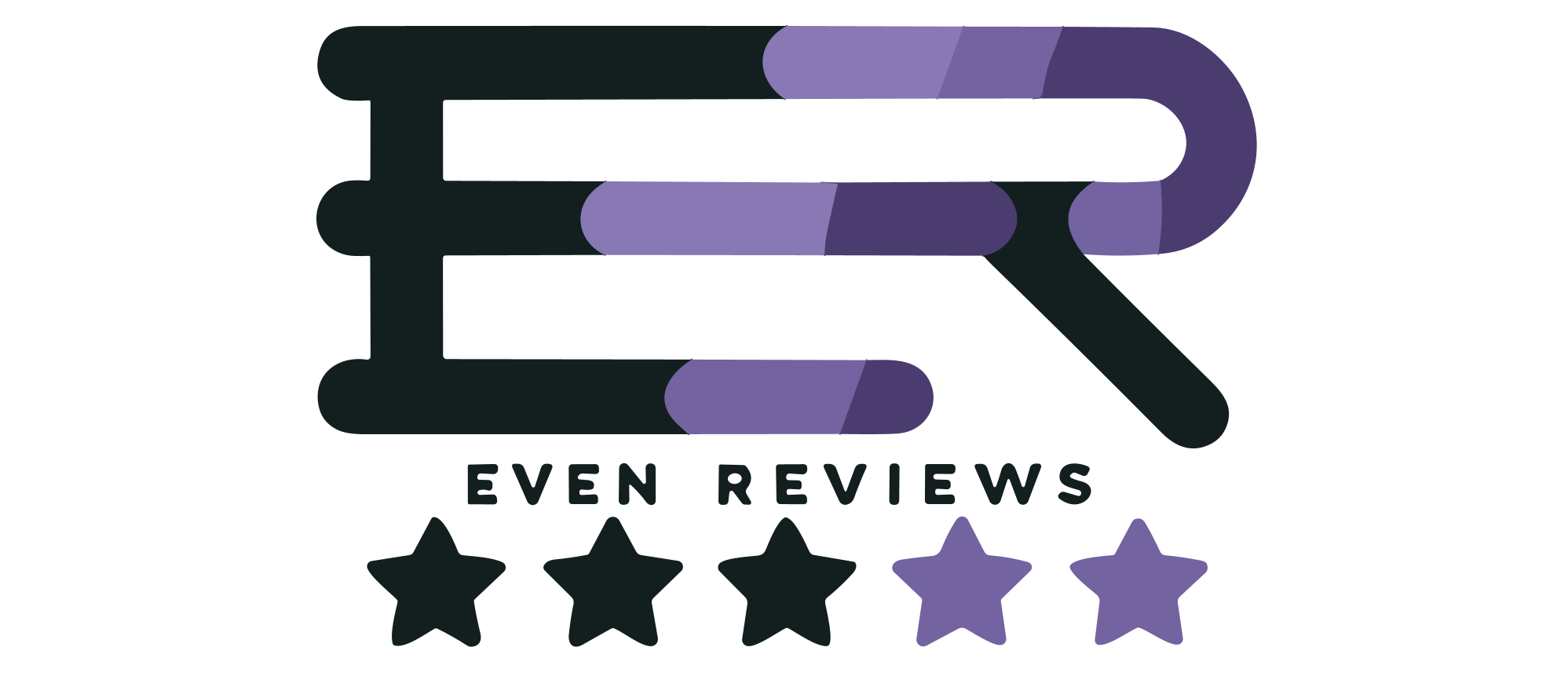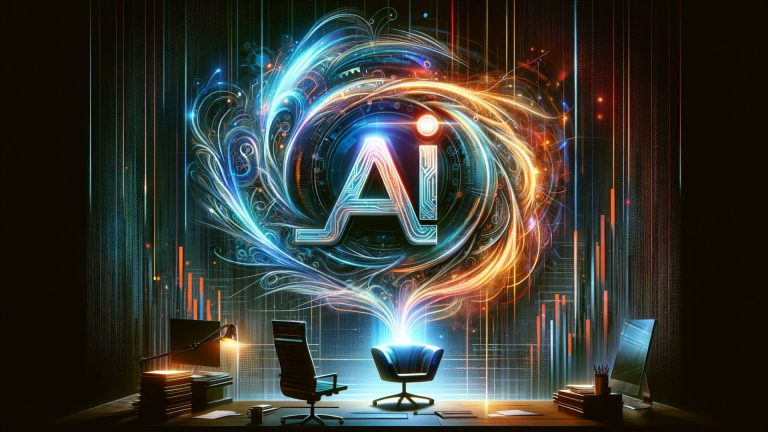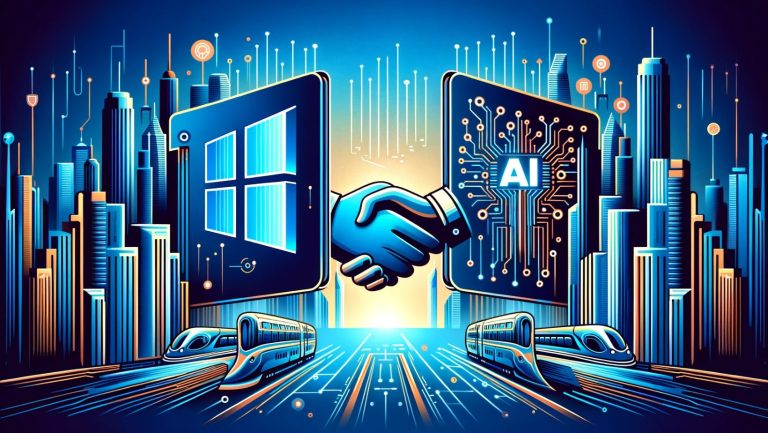Microsoft Hires Sam Altman: Unleashing a New Era in AI Technology
Some of our posts on EvenReviews.com contain affiliate links. If you click on an affiliate link and make a purchase, we may receive a commission. Clicking on an affiliate link that earns a commission does NOT result in additional charges or costs you extra. Earnings from affiliate links help keep this website running. See our full affiliate disclosure here.
Microsoft made waves this past weekend by hiring former OpenAI CEO Sam Altman to lead a new advanced artificial intelligence research team. Altman’s departure from OpenAI came as a shock on Friday when the company’s board suddenly removed him as CEO, citing a lack of candor in communications. The move sent shockwaves through the AI community and led to an intense weekend of negotiations to bring Altman back to OpenAI. However, after talks failed, Microsoft swooped in to hire Altman and OpenAI President Greg Brockman for its own AI initiatives.
This major development has wide-ranging implications for the future of artificial intelligence and the rivalry between big tech companies vying for supremacy in this space. In this article, we will analyze the key events that transpired over the weekend, what Microsoft hiring Altman means for its AI ambitions, and what could come next for OpenAI after losing its visionary leader.
Key Takeaways
- OpenAI’s board abruptly removed CEO Sam Altman on Friday, citing a lack of transparency with the board. This shocked the AI community.
- Over the weekend, negotiations took place to try to reinstate Altman as CEO, involving employees, investors like Microsoft, and Altman himself. But OpenAI’s board ultimately refused to bring Altman back.
- On Monday morning, Microsoft announced it hired Altman and OpenAI President Greg Brockman to lead a new advanced AI research team.
- This is a major coup for Microsoft, gaining two of the top minds behind OpenAI’s most advanced AI systems like ChatGPT. It boosts Microsoft’s prowess in the heated AI race.
- Altman will serve as CEO of this new Microsoft team, showing the company’s commitment to giving him autonomy in driving AI progress.
- Despite the drama, Microsoft reaffirmed its partnership with OpenAI. But OpenAI now faces uncertain leadership without Altman at the helm.
- This saga underscores the high stakes in the race for AI supremacy among major tech firms like Microsoft, Google, Meta, and more.
Background on OpenAI and Altman’s Shock Removal as CEO
OpenAI is a San Francisco-based artificial intelligence research company renowned for its cutting-edge generative AI systems like ChatGPT. Founded in 2015 as a non-profit, OpenAI’s mission is to develop AI that benefits humanity. The company made headlines in recent years for innovations like its GPT-3 language system and DALL-E image generator.
Sam Altman served as OpenAI’s CEO for the past four years and was the public face of the company. Under his leadership, OpenAI exploded in prominence, especially with the viral success of ChatGPT in November 2022. Many consider Altman to be one of the leading visionaries pushing the boundaries of artificial intelligence.
That’s why the tech world reacted with shock on November 18 when OpenAI’s board abruptly removed Altman as CEO, citing a lack of transparency with the board. OpenAI appointed CTO Mira Murati as interim CEO while searching for Altman’s permanent replacement.
The unexpected decision left many unanswered questions about what exactly led the board to lose confidence in Altman’s leadership. There were no indications of any misconduct, only vague references to a lack of open communications.
Behind the Scenes: A Weekend of High-Stakes AI Drama
The day after Altman’s dismissal, reports emerged about frantic negotiations underway over the weekend to potentially reinstate him as OpenAI’s CEO.
It came to light that several key leaders also resigned from OpenAI in protest of Altman’s firing, including President Greg Brockman and top researchers like Aleksander Madry. Brockman made it clear that if Altman did not return, he would not either.
Powerful OpenAI investors like Microsoft also intervened in hopes of getting Altman reinstated. Microsoft’s $10 billion investment in 2019 gave it substantial leverage, owning nearly half of OpenAI.
During talks with the board, Altman reportedly pushed for overhauling OpenAI’s governance with a new board that would give him more control if he returned. However, the four-person board refused to step down.
By Sunday night, it became clear that the OpenAI board would not budge on bringing back Altman despite pressure from employees, investors, and Altman himself. This paved the way for Microsoft to make its stunning move the next morning.
Microsoft Swoops In to Hire Altman for a New AI Venture
With Altman’s OpenAI return definitively rebuffed, Microsoft announced first thing Monday morning that it was hiring Altman and Brockman to head up a new advanced artificial intelligence team.
Microsoft CEO Satya Nadella shared the news on social media, saying “We’re extremely excited to share the news that Sam Altman and Greg Brockman, together with colleagues, will be joining Microsoft to lead a new advanced AI research team.”
This represents a major coup for Microsoft in the heated race with competitors to lead in AI. By bringing on Altman and Brockman, who were behind OpenAI’s most groundbreaking inventions, Microsoft gains invaluable talent and expertise for its own AI efforts.
Altman will serve as CEO of this new Microsoft division, showing the company’s commitment to letting him run this team with autonomy. Brockman and other researchers like Jakub Pachocki are also joining Altman’s new outfit.
Despite Altman’s contentious break from OpenAI, Nadella reaffirmed Microsoft’s commitment to their ongoing partnership. Microsoft invested billions into OpenAI and will continue relying on its technology. With Altman gone, Nadella said he looks forward to working with the new OpenAI leadership.
What This Means for the Future of AI
Sam Altman’s jump from OpenAI to Microsoft carries several major implications:
- Bolsters Microsoft’s position as an AI leader: With Altman at the helm of a new advanced research team, Microsoft can accelerate its AI capabilities to compete with Google, Meta, and others.
- Prevents major brain drain from OpenAI: If Altman joined another competitor, it could have triggered an exodus of researchers from OpenAI. Microsoft hiring him prevents this while keeping access to OpenAI’s progress.
- Race to general artificial intelligence continues: Altman has been vocal about the perils of pursuing AGI without safety measures. Microsoft will allow him to keep advocating for responsible AI development.
- OpenAI faces an uncertain future: Despite retaining Microsoft’s business, OpenAI must now rebuild its leadership without its famous CEO and President. It remains to be seen if they can maintain pace at the forefront of AI.
This saga underscores how high the stakes have become in artificial intelligence and the cutthroat competition between tech giants vying to own this space. Sam Altman’s immense value as a visionary leader compelled Microsoft to make a massive play to keep him aligned with their strategic goals. This will have resounding effects on the course of AI innovation and competition for years to come.



